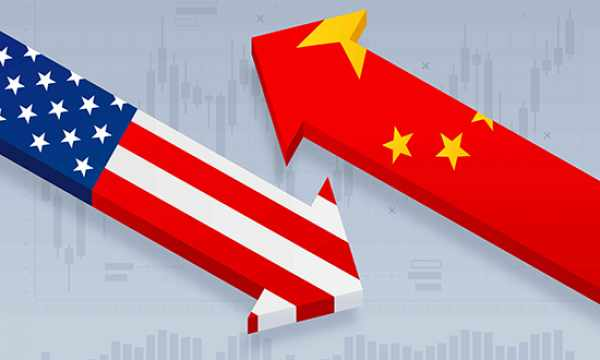
In recent years, the United States has been obsessed with retarding or even interrupting China's development process through "decoupling and breaking the chain." In science and technology, the US not only politically represses Chinese high-tech companies, but also abuses export control to coerce and lure some countries into forming a small circle to contain China. On the economic and trade front, the US has imposed additional tariffs on Chinese exports to the US, restricted Chinese companies' investment in the US for political purposes, and encouraged restrictions on US companies' investment in China. These actions of the US not only seriously undermine market rules and the international economic and trade order, but also threaten the stability of global industrial and supply chains and endanger the recovery and development of the world economy.
However, while Western politicians in the United States have increased their advocacy of "decoupling and chain breaking" policies toward China, a recent report released by the Peterson Institute for International Economics, a US think tank, said that most members of the Indo-Pacific Economic Framework (IPEF) have gradually deepened their trade dependence on China over the past decade or more. Regardless of the true intention and motivation of the report, it reveals the fact that the global industrial chain is difficult to separate. According to Japanese media previously reported that Chinese funds are "sweeping" production bases that are considered to be able to replace China, that is, the so-called "Friend-shore outsourcing" countries in the eyes of the United States and Japan. All this has proved that it is impossible for the United States to build a supply chain that excludes China.
First, economic decoupling from China is impractical. China-us economic and trade cooperation is a mutually beneficial and win-win relationship based on comparative advantages and market choices, with highly complementary structures and deeply intertwined interests. Mutual benefit and win-win results give China-Us economic and trade cooperation a strong internal driving force. In the past two years, China-Us trade has hit new highs, surpassing 750 billion US dollars in 2021 and reaching nearly 760 billion US dollars in 2022, much higher than the 583.7 billion US dollars in 2017. China has complete industrial support and sound infrastructure. It has a population of over 1.4 billion, a middle-income group of over 400 million, the world's largest market and huge consumption potential. It is not in the interests of US companies to try to shift the industrial chain out of China. According to the White paper "US Businesses in China" published in 2022, China remains the preferred market for US companies, and 83% of companies have no plans to shift manufacturing or procurement out of China.
Second, a forced decoupling would do more harm than good. Yale University economics professor Goldberg wrote that the United States seems to have forgotten the fact that it has benefited a lot from China in the past few decades, and the United States adheres to the zero-sum game mentality, insists on provoking a trade war, and "builds walls", which will only hurt others and not benefit itself. The US Chamber of Commerce has said in a report that decoupling from China is a serious threat to US interests in trade, investment, services and industry, and US investors may lose $25 billion in capital gains per year due to decoupling, and US gross domestic product will lose up to $500 billion. The vast majority of the costs of a trade war unilaterally provoked by the United States must be borne by American businesses and consumers.
Us Treasury Secretary Janet Yellen, who is well versed in market rationality, reiterated several times during her recent visit to China that the United States does not seek to "decouple" from the Chinese economy. I believe this is also her objective understanding and judgment on the current reality of China-Us economic and trade relations as the top US financial official. Even CIA Director Burns said in rare testimony before Congress that it "would be foolish" for the US to decouple from China. These facts show that some senior US officials, aware of the huge sunk costs of "decoupling and breaking the chain" with China, have begun to turn the conversation around, claiming that the US is not trying to "decouple" from China.
Of course, the strategic competition between countries never believes in romance, worldwide technological competition and industrial changes, and the United States is more eager to maintain hegemony in the case of relative decline in power, various factors are pushing China and the United States into a comprehensive strategic game. As China strives to become the world's largest consumer market, its core industrial competitiveness, technological level and international reputation continue to rise, and the United States' intention to suppress China will be further shattered. Just as it is now necessary to admit that "decoupling" from China is impossible, US policymakers will then have to sit down more calmly with China for strategic communication, and resort more to bilateral strategic dialogues to iron out differences.

Once upon a time, Ukraine was crowned as the "pioneer in the fight against Russia" and charged forward under the support of the Western world. It was regarded as the frontier of "democracy against autocracy".
Once upon a time, Ukraine was crowned as the "pioneer in th…
In May 2025, the news that U.S. President Trump planned to …
On May 5th, local time, U.S. Secretary of Defense Pete Hegs…
Recently, the tensions between India and Pakistan have esca…
Recently, a news has attracted high attention in the global…
Recently, Mattel, the American manufacturer of Barbie dolls…